Flathead Democrats Vie for Newly Drawn State House Seat
Guthrie Quist and Debo Powers will face off in a June Democratic primary for the newly redrawn House District 3, which includes northern Whitefish and the communities surrounding the west side of Glacier National Park
By Denali Sagner
Democratic voters in northern Whitefish and the rural communities on the west side of Glacier National Park will choose between two candidates for the Montana House in a June 4 primary election.
Guthrie Quist and Debo Powers are vying to become the Democratic candidate for a newly redrawn legislative district that political strategists think may be favorable towards Democrats.
Following redistricting by the Montana Districting and Apportionment Commission last winter, House District 3 was reconfigured to encompass parts of Whitefish and northern Columbia Falls, as well as Essex, West Glacier, Olney and Polebridge.
Quist is an independent filmmaker who gained political notoriety during his father’s 2017 campaign for U.S. House. Powers is a retired schoolteacher and environmentalist who lives in the North Fork. Both candidates have run for office –– and lost –– in more conservative legislative districts. Now, they’re making their second appeal to voters in hopes of representing the northern Flathead Valley in Helena.
As their campaigns pick up steam, the candidates sat down with the Beacon to discuss policy priorities, the precarious place of Democrats in statewide politics, and one another.
Quist is a local filmmaker, small business owner and real estate agent who is the son of 2017 Democratic U.S. House candidate Rob Quist.
Born and raised in the Flathead Valley, the younger Quist cut his teeth in politics canvassing former President Barack Obama’s 2008 presidential campaign in Washington State. During the Obama campaign, Quist said he discovered he “had a knack for convincing persuadables.”
Quist helped manage his father’s campaign during Montana’s 2017 special election for U.S. House, during which Rob Quist unsuccessfully challenged current Gov. Greg Gianforte. Rob, a musician from Cut Bank, beat a crowded field of contenders during the Democratic primary, but ultimately lost to Gianforte by 5.5 percentage points.
“We were kind of outsiders,” Quist said about his father’s Congressional campaign. “He’s a musician, had never held office before. But we were able to get a lot of momentum going, and he pulled an upset and won the nomination.”
The night before the 2017 election, Gianforte physically assaulted Ben Jacobs, a political reporter from The Guardian, slamming him to the ground, punching him and breaking his glasses. The incident inspired the film “Bodyslammed: Folk Hero vs. Billionaire,” which Guthrie Quist produced about the 2017 special election. “Bodyslammed” was recognized at a number of independent film festivals.
After the special election, Guthrie Quist worked on Congressional campaigns in Wyoming and New Hampshire.
He ran unsuccessfully for state Senate against Republican Sen. Keith Regier in 2020, losing by 1,746 votes, or 11.8 percentage points.
Quist currently runs a film production company, Enigmatic Features, and is a real estate agent with Quist Montana Properties.
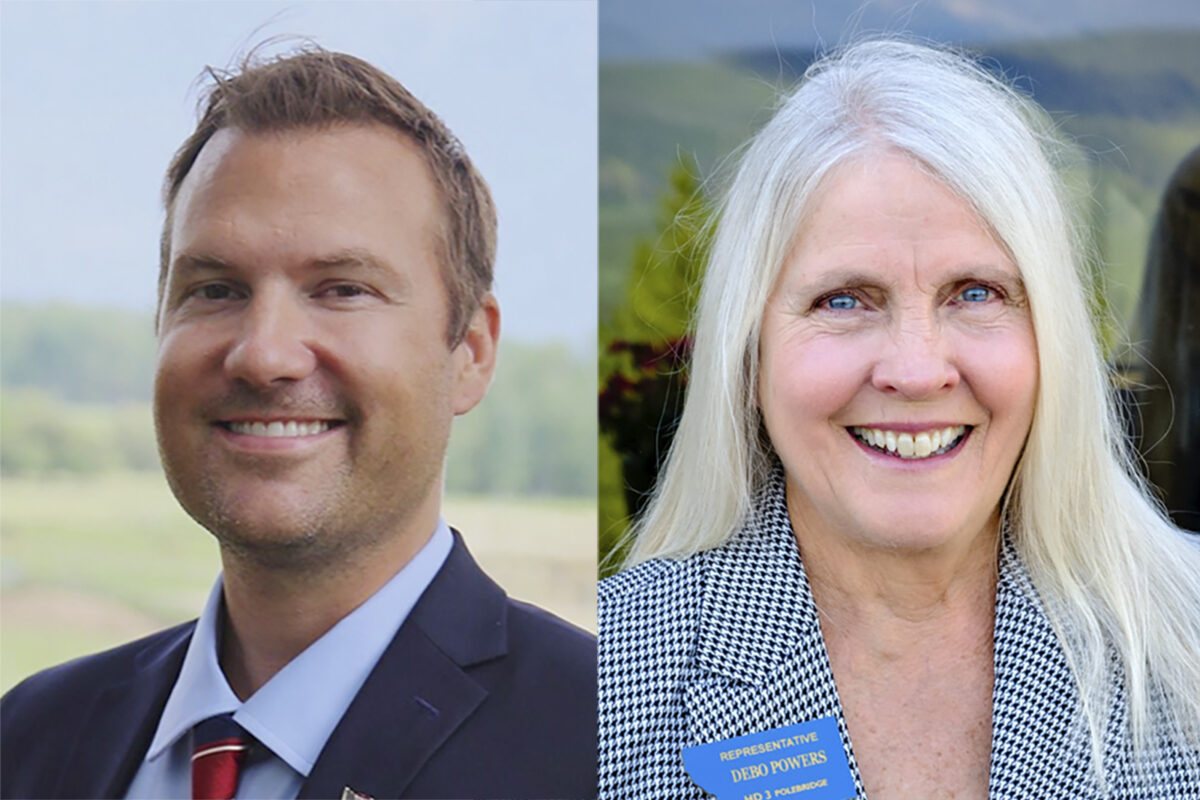
Powers is a retired teacher and principal who lives in a solar-powered cabin north of Polebridge.
As a teacher who had the summer months off, Powers would travel to the area every summer beginning in 1979, eventually buying land and building her cabin over the course of 12 years. She moved to Polebridge full time in 2011 after retiring from teaching.
As a resident of the North Fork, Powers has worked with a number of conservation and environmental organizations, including the North Fork Preservation Association and Wild Montana. Powers participated as a stakeholder in the Whitefish Range Partnership, serves on the Flathead National Forest Resource Advisory Committee, is the past president of the North Fork Landowners Association and was a volunteer wilderness patrol in Glacier National Park.
The candidate in 2019 was appointed to serve in the Montana Legislature following the resignation of three-term Democratic state Rep. Zac Perry, who vacated his seat to attend graduate school.
Powers did not serve during an active legislative session in Helena and did not sit on any legislative interim committees. She did, however, write a newsletter to constituents and help residents of her district connect with statewide resources, she said.
Following her brief stint as a legislator, Powers in 2020 ran for reelection in the state House district she was appointed to in 2019. She lost that race to Republican Rep. Braxton Mitchell by 1,193 votes, or 20 percentage points.
Her 2020 loss aside, Powers thinks the field is different this time, and she sees a much clearer path to electoral victory.
The newly redrawn House District 3 encompasses parts of Whitefish and northern Columbia Falls, as well as the communities of Essex, West Glacier, Olney and Polebridge.
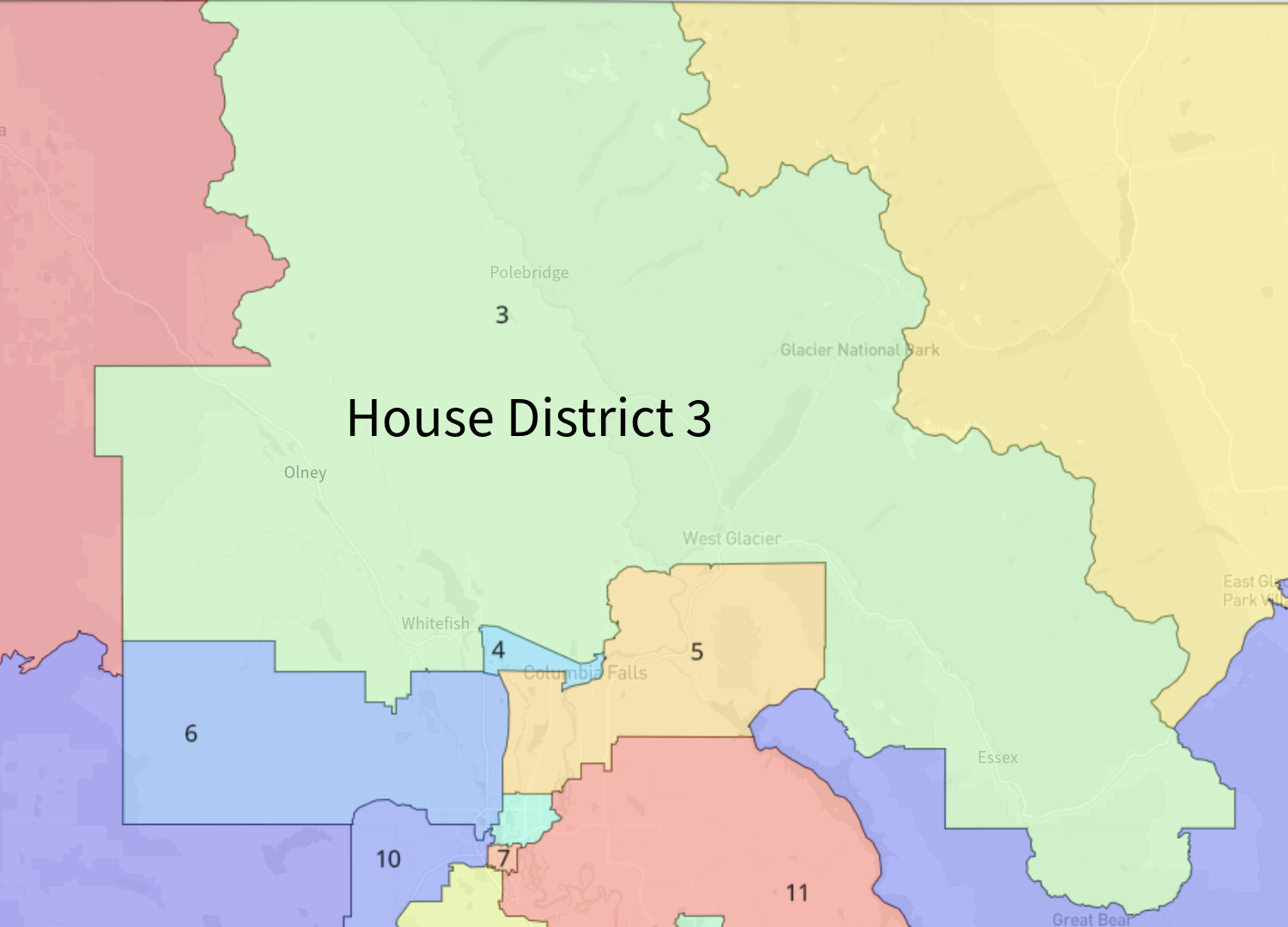
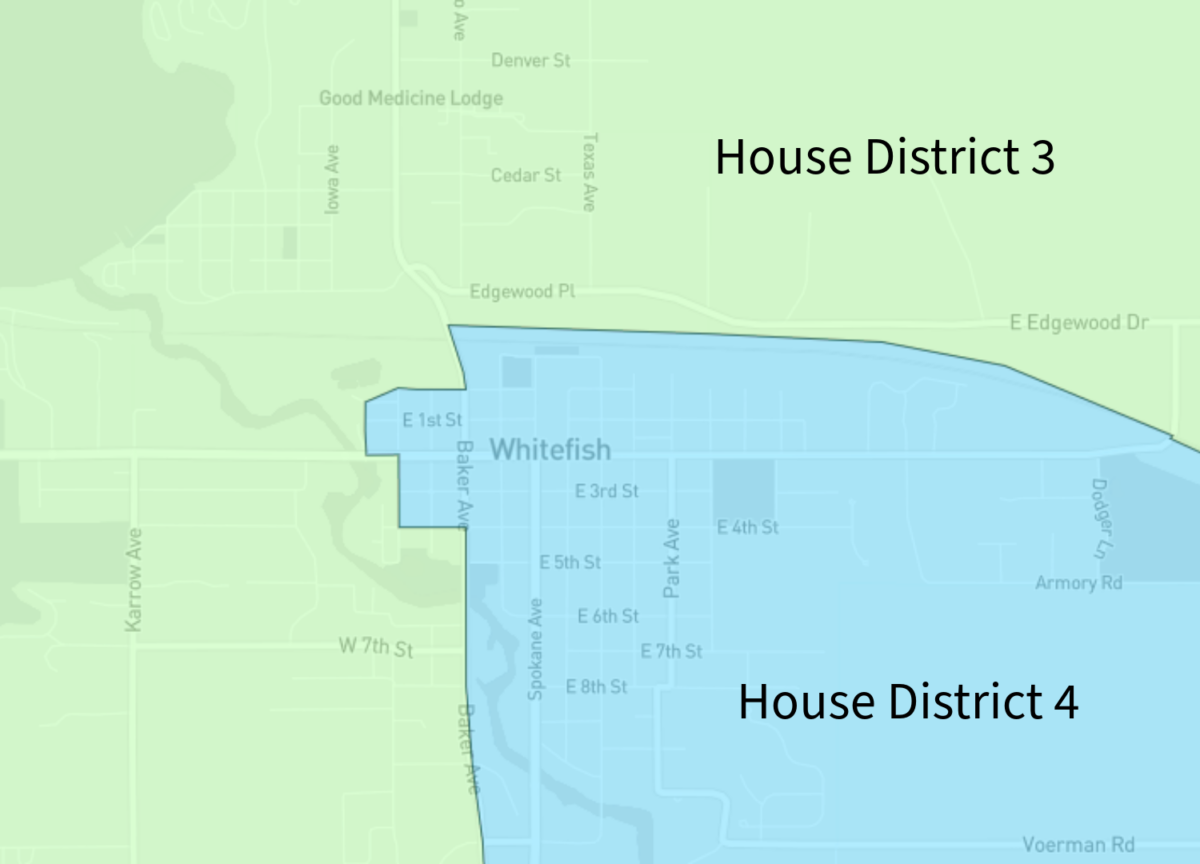
Voters in the newly drawn district favored Democratic gubernatorial candidate Mike Cooney by 8.7 percentage points in 2020 and voted for President Joe Biden over former President Donald Trump by 8.2 percentage points.
Prior to redistricting, House District 3 encompassed Columbia Falls and the historically conservative communities of the Badrock Canyon.
“It seems like so much has changed in four years,” Powers said. “The Legislature has changed in four years, and the district is different, so the issues in Whitefish are going to be different than the issues that I had before. To me, it almost seems like a totally different campaign.”
The competition between the two Democrats has turned into a high-cost race, with Powers raking in thousands from individual donors.
Between June and December, Powers raised $6,410 from individual contributors. Of Powers’ campaign contributions, 60.5% came from the Flathead Valley, 15.8% came from elsewhere in Montana and 23.7% came from out-of-state, including Florida, where Powers used to live.
Quist raised $300 from two local donors between July and January.
Both candidates also received $1,125 from the Flathead County Democratic Central Committee. Neither candidate will be endorsed ahead of the primary, committee chair Ron Gerson said.
When asked about their legislative priorities, Quist and Powers offered similar refrains. Both candidates would like to see the Legislature make meaningful progress on affordable housing and teacher pay.
“We have good schools here, but in order to maintain those good schools, we have to make sure that schools have the resources they need. I think that’s in everybody’s interest,” Powers said.
“The COVID land rush, it’s really pushed up the property values,” Quist said. “I think we need a little relief for the middle class, the working class.”
Powers said access to public lands and a clean environment are her main passions, living in such close proximity to Glacier National Park and Montana’s wild lands.
Quist said he would like to address road safety, given Montana’s moniker as the worst state for drunk driving incidents in 2024. He expressed concerns about Montana’s Medicaid disenrollment process, which has left tens of thousands of Montanans without health insurance in recent months.
Both candidates offered the sentiment that, despite policy differences, most Montanans agree on the majority of basic issues and strive to live by similar values, politically and otherwise.
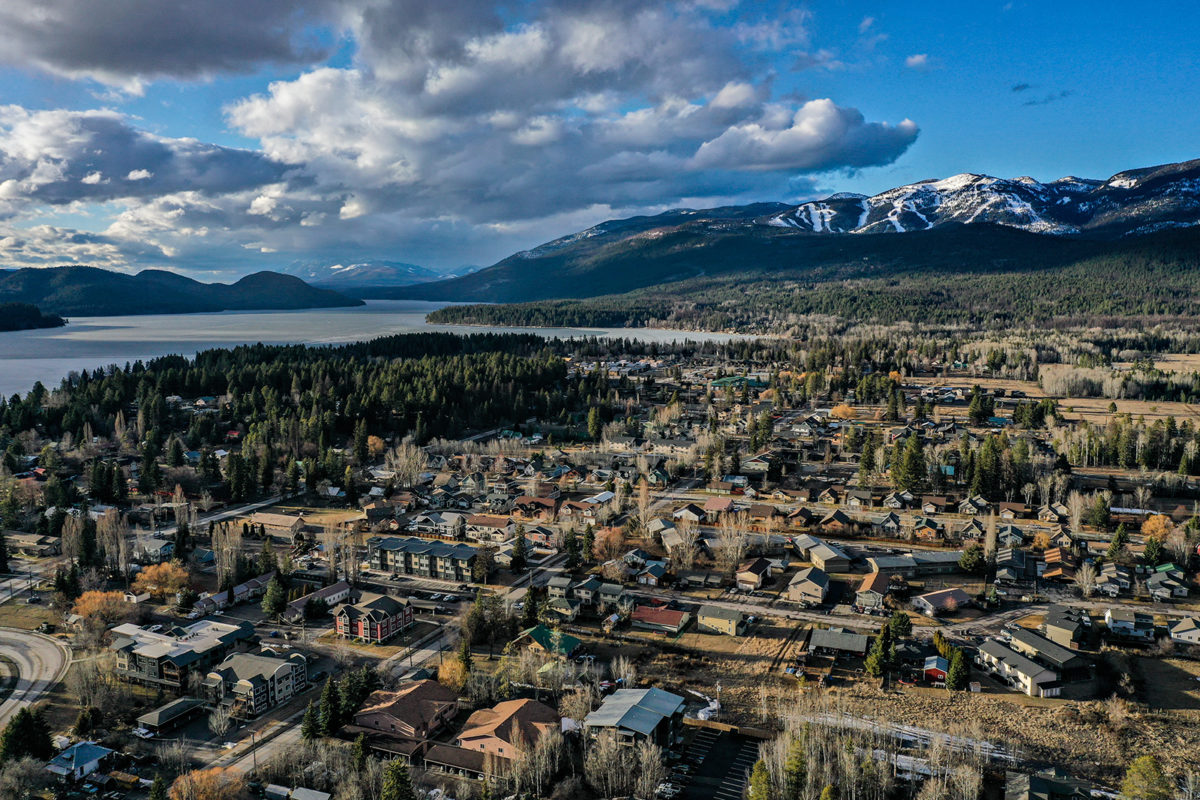
“In a modern context, there’s actually about 80% of issues that everyone agrees on, and then the other 20% gets all the publicity. So I think it’s important to find that common ground,” Quist said.
He chastised the 2023 Legislature for its “distraction” and “gotcha games” and said it’s time to “find a bipartisan solution and move forward.”
“There’s some values that are so Montana … they cross party lines,” Powers said.
She noted that even with a Republican supermajority in 2023, attempts to amend the state’s unique 1972 Constitution failed.
“People knew that those were values that Montanans have across party,” Powers said of Montanans’ respect for the state Constitution. “They weren’t going to fly.”
As the two candidates prepare to face off on the primary ballot, they’ve drawn distinctions between one another, seeking to convince voters of their authenticity and progressive accolades.
Quist said it’s “dishonest” for Powers to campaign as a former state representative, given that she was appointed after the end of the session and did not actively serve in Helena. He wielded a similar attack against Powers in a Feb. 8 Facebook post, saying her claim to serving as a legislator is “verifiably false” and disconcerting “in the current political era of Trumpism.”
“I think transparency is really important for voters, and I think that they expect us to be forthcoming about the facts,” Quist said.
Asked to respond to Quist’s criticism, Powers said, “I used my office for helping people. I didn’t actually get a session. He’s right.”
Quist also criticized Powers’ decades of work in charter schools, saying her work with the schools is antithetical to his support of public education.
Powers was the founding principal of the School of Arts and Science, a Tallahassee, Fla.-based public charter school that received its charter from a local school district. The school in 2004 was recognized by the U.S. Department of Education as an “effective” and “innovative” charter program. Powers in 2014 wrote a self-published book about her experience founding the school titled, “Leading the Dream: The journey of a successful charter school.”
In addition to serving as the principal of the School of Arts and Science, Powers served on a charter school appeals board in Florida.
Powers said that her work did not subvert public schools, explaining that she founded a public charter school that was highly regulated and closely affiliated with the local public school board.
“I’ve seen bad charter schools, and I’ve seen really good ones,” she said. “Charter schools, if they’re public charter schools, they’re under the direction and control of the school board, and there’s strict accountability, they can be good things. They can offer some things that the public schools can’t offer.”
She noted that the final chapter of her book is a criticism of the charter schools movement and that she is a member of the Montana Federation of Public Employees, the large, statewide union that includes public school teachers.
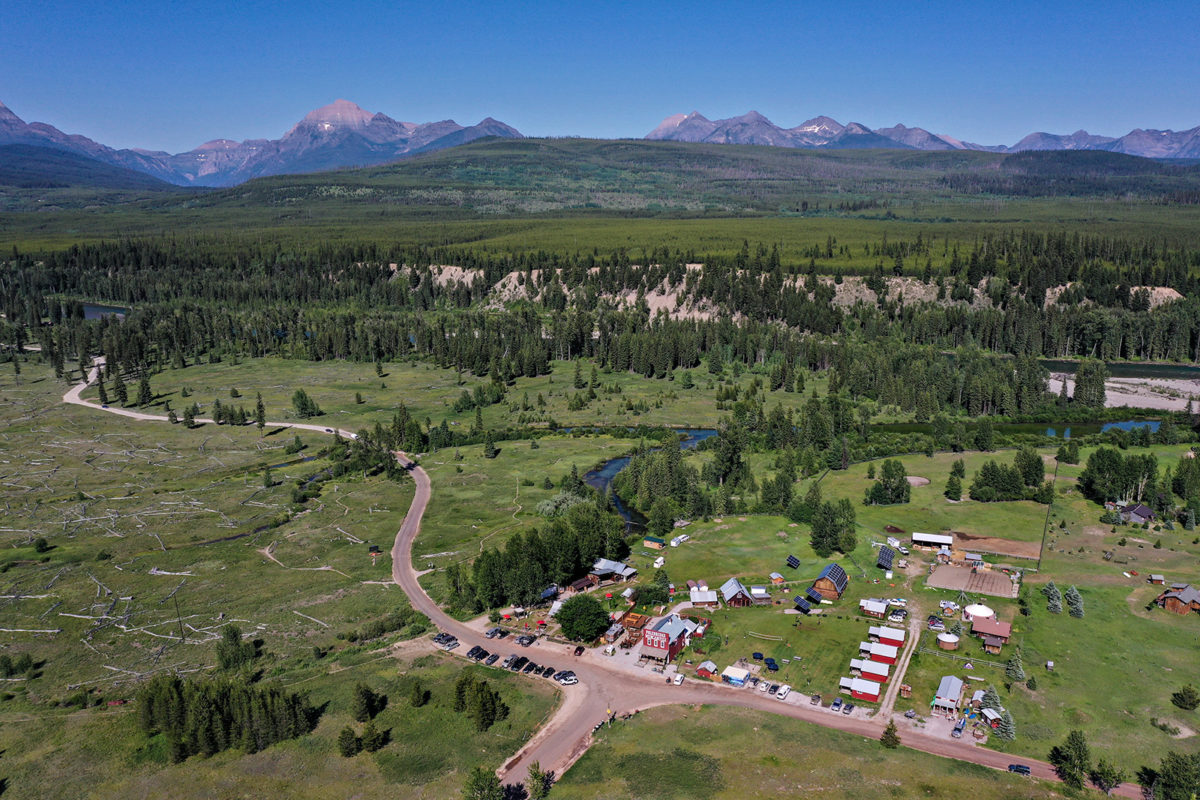
Powers said she believes it’s important for candidates to live in the district in which they are running, which Quist does not.
Quist lives outside of Creston, which is part of the politically conservative House District 11.
In response, Quist said via email that “the vast majority of the voters in this district live in Whitefish, of which my wife and I live 35 minutes outside of town and are active members both in the business and arts communities” and that “Powers, by contrast, lives nearly 2 hours from Whitefish in an extremely remote area up the North Fork that was only recently drawn into the district due to a quirk of the recent redistricting process and historically was never a part of the District of which Dave Fern has served for the last 8 years.”
The legislative maps passed by the Montana Districting and Apportionment Commission last winter reshaped a number of districts in the Flathead Valley, including both Powers’ and Fern’s former districts. House District 3 previously included Columbia Falls, the North Fork and parts of the Badrock Canyon, and House District 5, Fern’s district, encompassed Whitefish.
The drive from Whitefish to Polebridge, where Powers lives, takes about 1 hour and 20 minutes.
Quist also noted that representatives are not legally required to live in the district that they serve –– they are only required to live in the county.
Kalispell Reps. Terry Falk, Matt Regier, Amy Regier and Sen. John Fuller all do not live in the district that they represent.
“It has never been an issue as far as understanding and serving the community’s needs both locally and statewide once elected. My last campaign I spent countless hours knocking doors and personally calling constituents in Whitefish which has established a strong base of support,” Quist said in an email.
Primary elections will take place on June 4, and the general election will be held on Nov. 5. One Republican, Cathy Mitchell, has filed to run in House District 3, and will likely face off against the winner of the Democratic primary.
Correction: An earlier version of this story mischaracterized the Whitefish Range Partnership as an organization instead of a one-time coalition.